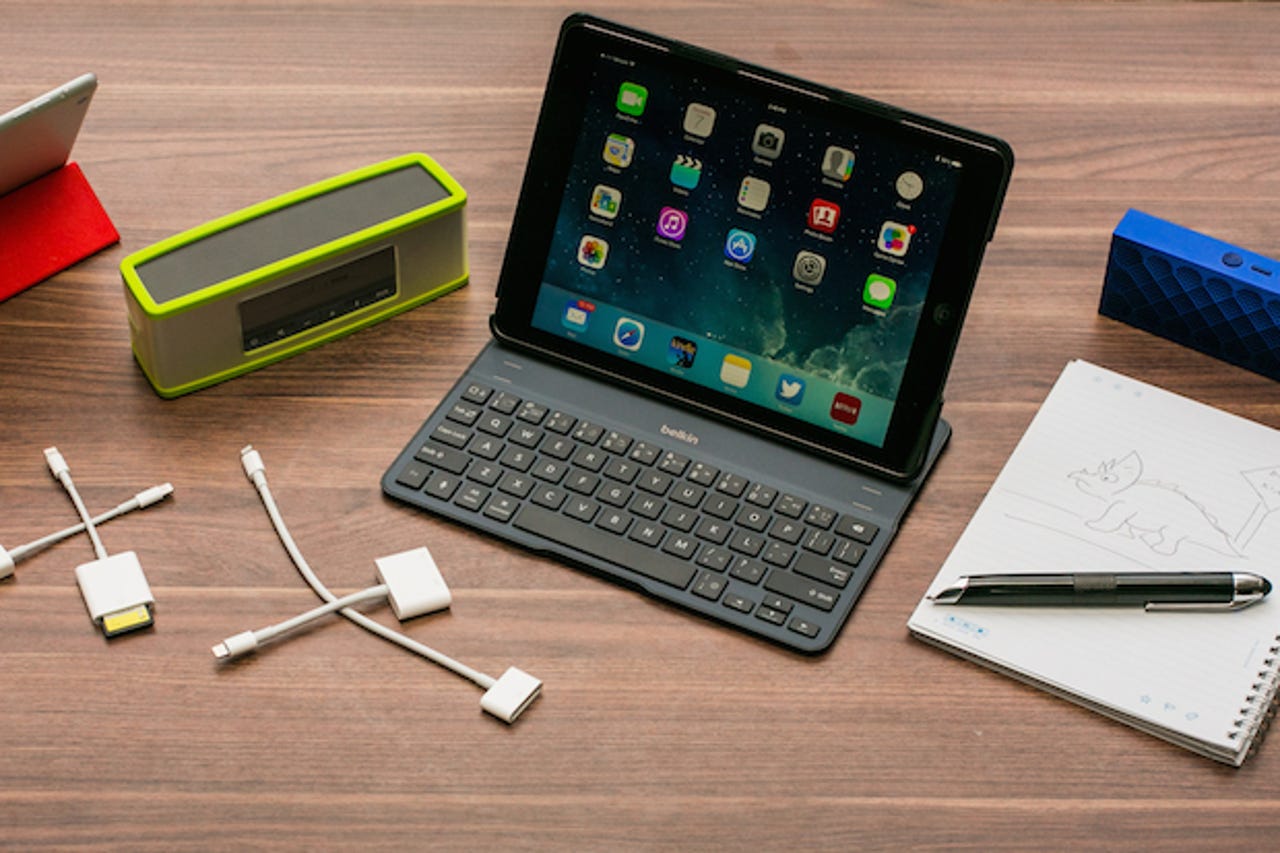Cook 'not worried' about iPad declines: Here's why

Apple's overall quarterly results on Tuesday had some hits and a few misses, but one real sinker: declining iPad sales.
The Cupertino, Calif.-based technology giant reported almost 1.2 million fewer iPads than Wall Street expected during the three-month period, ending mid-June. That would ordinarily cause a headache for Apple executives. But for chief executive Tim Cook?
"This isn't something that worries us," Cook said in an interview with the Wall Street Journal on Wednesday.
And he's right not to worry, thanks to the IBM deal, which aims (and should) bring iPad well and truly into the enterprise.
Apple currently sees iPads in 99 percent of the Fortune 500 companies, including banks, technology companies, and others. But that could mean just one iPad lurking in someone's cubical. It doesn't mean anything. The penetration rate, Cook said, is low. It's just 20 percent. Compare that to its penetration of its Mac line-up in business, which is 60 percent, Apple has some work to do.
"We win if we can drive that penetration number... that would be incredibly exciting. The walls would shake." — Apple CEO Tim Cook
Apple currently has iPads in 99 percent of the Fortune 500 companies, including banks, technology companies, and others. But that could mean just one iPad lurking in someone's cubical. It doesn't mean anything. The penetration rate, Cook said, is low. It's just 20 percent. Compare that to its penetration of its Mac line-up in business, which is 60 percent, Apple has some work to do.
It's a good job that IBM deal came about sooner rather than later.
In case you missed it, Apple and IBM will collaboratively build more than 100 vertical-focused enterprise apps built for iPad and iPhone devices, for retail, healthcare, and other industries. In return, IBM's cloud services — such as device management, security and analytics — will be optimized for iOS.
Both companies win, and win big. Apple particularly wins, as enterprise customers will be further lured towards snapping up the iPad in the business world.
And that's the hook. Considering the PC market is declining, and the Mac business is barely denting those figures — although, year-over-year Mac sales are increasing and faring well on the whole — iPad has to regain its once-proud market share crown that is slipping away into Samsung's hands.
Cook isn't worried because that's the goal of the IBM deal.
At the end of the day, IBM's business and enterprise clout will likely be enough to convince the naysayers and the fence-sitters that the iPad rules the tablet roost. By plugging enterprise-focused apps designed specifically and exclusively for the iPad may check that final box chief information officers were looking for.
Should the Apple-IBM deal pay off, and there's no reason at this point to show it won't, iPad sales will trickle into the enterprise and penetration rates should increase over time.
"We win if we can drive that penetration number... from 20 percent to 60 percent. That would be incredibly exciting. The walls would shake. So that's what I hope for," Cook said on the follow-up earnings call on Tuesday.
The Apple-IBM deal now has a little more meat on its bones, and it's beginning to make sense in the wider scheme of things. Apple's shown its weakness, and it's got itself a way out.
